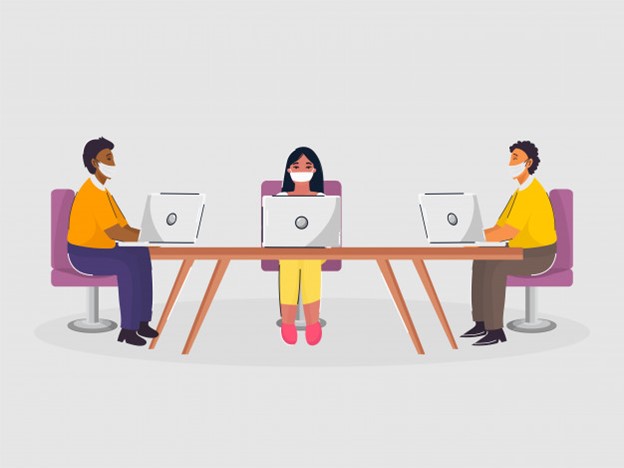
Because of COVID-19, many businesses had to shut down, leading to a rise in the unemployment rate. Despite this, some workers were fortunate enough to keep their jobs, and some are even working from home.
After many months of enduring this pandemic, more states chose to re-open their economies. This means more employers opt to compel their employees to go back to their workplace to keep their businesses back on track. However, many employees are reluctant to go back to work for safety reasons. COVID continues to be a threat to their health.
Factors that Help Determine if Your Employer Can Compel You to Return to Work
The real question is: can your employer force you to go back to work? The answer would depend on many factors as listed below:
Are you an Essential Worker?
The definition of essential employees varies from state to state. However, there are 14 general categories as listed below:
- Healthcare Employees
- Chemical Management Employees
- First Responders
- Financial Services
- Food and Agriculture Workers
- Energy Employees
- Hazardous Material Management
- Water and Sanitation
- Communications of Information Technology
- Transportation and Logistics
- Public Workers
- Defense Industrial Base
- Manufacturing
- Community-Based Government Operations and Essential Functions
These workers must report to work even in situations like this. But if they are sick or got exposed to COVID-19, they can’t be fit to work. Moreover, some laws might also protect them from returning to work. These laws include the Family and Medical Leave Act (FMLA) or Americans with Disabilities Act (ADA).
Does an Employment Contract Protect You?
If you are currently working in an at-will state like Illinois, your employer can compel you to go back to work. This is true unless you are covered by an employment contract or a state, federal, or local law.
Are you Sick or Have You Been Exposed to Anyone with COVID-19?
If you are sick, showing coronavirus symptoms, or have been exposed to anyone sick with coronavirus, your employer might ask you to seek medical help to ensure you are qualified to go back to work. But if you haven’t had any exposure to the virus and are fit to work, your employer may compel you to return to work.
Do You Have to Care for a Child or Parent Affected by the Coronavirus?
If you need to care for a parent or child due to COVID-19, the Families First Coronavirus Response Act (FFCRA) will protect you. This Act is designed to give paid and expanded leave to workers working for employers with 500 or below employees.
What if I Have a Disability?
If ADA recognized you as an employee with a qualifying disability, you are entitled to work remotely. Your employer is required to follow the rules provided by the ADA. Hence, your employer cannot force you to go back to your workplace.
What if I’m Simply Terrified to Return to Work?
Suppose you are hesitant in returning to work because you are scared of being infected by COVID-19. In that case, you have no other choice unless you require child care, your contract permits you to work remotely, or have a qualifying disability.
Employer’s Responsibility to Ensure Workplace Safety
The Occupational Safety and Health Act (OSHA) provides guidelines that employers must comply with to ensure workplace safety. Besides that, states can also provide their own OSHA-approved workplace safety plans, which tend to have higher standards. Moreover, if you believe that your workplace is unsafe, you can freely report it to OSHA, and they will conduct an inspection.
With the coronavirus pandemic on-going, employers are required to follow additional precautions concerning COVID-19. This includes the following:
- requiring employees to wash hands more often
- practice social distancing
- disinfecting and cleaning work areas
- providing appropriate personal protective equipment (PPE) like masks
- adjust the workplace to divide employees (split-shifts, altering work stations, staggered breaks)
- monitoring employee health (taking temperatures and asking if employees are experiencing any COVID-19 symptoms)
If You Got Exposed to COVID-19 at Work, Can You Sue Your Employer?
Suppose you became positive for coronavirus and believe that it is your employer’s fault. You can choose to sue your employer. Most of the time, employees opt to file a worker’s compensation claim rather than a personal injury lawsuit. However, to understand the process much better, it is vital to seek advice from personal injury lawyers.
Takeaway
If your employer forces you to go back to work post-COVID, you don’t have any choice but to comply to keep your job. However, if you are protected by some laws or are unfit to return to work, then you are exempted. Furthermore, if you should go back to work, it is a must to keep safe and healthy during this pandemic.
Latest posts by Five Fantastic Lawyers™ (see all)
- Introducing Our Latest Guide: How to Become an Employment Lawyer - October 26, 2024
- 5 Simple Ways to Choose an Auto Accident Attorney - October 14, 2024
- The Importance of Clear and Concise Deposition Summaries for Legal Teams - October 14, 2024
